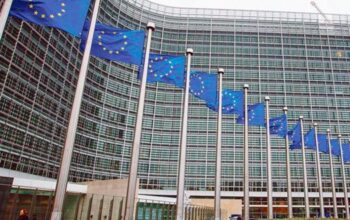On April 28, the Government of Republika Srpska delivered its 17th Report to the United Nations Security Council. The report advises the Council on the Entity’s positions on a range of issues relevant to the international community’s involvement in Bosnia and Herzegovina. The executive summary of the report is below.
Republika Srpska’s 17th Report to the UN Security Council
Introduction and Executive Summary
Republika Srpska (RS), a party to all of the annexes that comprise the Dayton Accords, respectfully submits this 17th Report to the UN Security Council, which outlines the RS Government’s views on key issues facing Bosnia and Herzegovina (BiH). Among the issues examined in this report are Bakir Izetbegovic’s unlawful attempt to unilaterally represent BiH before the International Court of Justice (ICJ), efforts by his SDA party and its international allies to undermine the protections of the Dayton Accords, the importance of BiH’s Dayton structure, and Republika Srpska’s agenda for reform.
I. Bakir Izetbegovic should be held accountable for his provocative and flagrant violation of the BiH Constitution in his attempt to misrepresent BiH before the ICJ.
Section I of the report examines Bakir Izetbegovic’s recent violation of the BiH Constitution. In March, he attempted to initiate new proceedings against Serbia before the ICJ based on a 2007 ICJ judgment involving Serbia despite the other two members of the BiH Presidency opposing such action. The Constitution empowers only the BiH Presidency to represent BiH before international institutions such as the ICJ, and a single member of the Presidency has no authority to take decisions on its behalf. Yet Izetbegovic made no effort even to consult the other members of the presidency with respect to initiating new proceedings before the ICJ. Izetbegovic’s move was a provocative attempt to undermine the legitimacy of Republika Srpska and the rights of the Serb People. His actions defied the ICJ’s clear instruction that Sakib Softic, BiH’s agent from the original lawsuit a decade earlier, was no longer authorized to represent BiH. Republika Srpska has responded to Izetbegovic’s ICJ scheme by seeking legal accountability for those responsible and reforms to restore the rule of law. Republika Srpska urges members of the international community to condemn Izetbegovic’s unlawful attempt to seize for himself powers reserved to the BiH Presidency.
II. Izetbegovic’s unconstitutional actions involving the ICJ were a part of the SDA’s continuing efforts to undermine the legal status of Republika Srpska and the Serb and Croat Peoples under the Dayton Accords with the aid of its supporters within the international community.
In section II, the report describes other efforts by the SDA and its international supporters to undermine the legal status of the Entities and Constituent Peoples under the Dayton Constitution. Izetbegovic challenged the legitimacy of Republika Srpska’s existence by seeking a ban on RS Day, the longstanding and peaceful annual celebration of the day Republika Srpska was founded. Republika Srpska modified RS Day to be consistent with the Constitutional Court’s November 2015 decision, but the SDA and its allies nonetheless accused Republika Srpska of defying the Constitutional Court. In support of the SDA agenda against Republika Srpska, U.S. officials made demands on the RS president and prime minister that unlawfully interfered in BiH’s domestic affairs, threatening sanctions if the demands were not met—a threat that was carried out by the Obama administration in its last week in office. The SDA has also continued to use the BiH Prosecutor’s Office as a political weapon against RS President Milorad Dodik and other officials in violation of the rule of law.
III. The Dayton structure is essential to BiH’s future.
Section III explains that the structure created by the Dayton Constitution is indispensible and must be restored. The Constitution, in recognition of what is necessary for long-term stability in BiH, left the Entities broad autonomy, strictly limited BiH-level competencies, and established protections for each of BiH’s Constituent Peoples. Unfortunately, the High Representative bypassed those protections as he centralized BiH using his wholly fabricated “Bonn Powers.” The very constitutional protections that the High Representative bypassed now enable BiH’s Bosniak parties to veto even modest reforms to restore the Dayton structure.
IV. Republika Srpska’s agenda for reform seeks to restore the political structure established by the Dayton Accords so that stability and prosperity are possible in BiH.
Section IV describes Republika Srpska’s agenda for reform. Republika Srpska despite SDA claims, is not seeking to secede from BiH. Instead, Republika Srpska is working to implement the decentralized system guaranteed by the Dayton Constitution. As the EU has made clear, BiH’s constitutional structure is no barrier to EU membership. Republika Srpska is continuing to seek judicial reforms through the EU-sponsored Structured Dialogue on Justice, despite the SDA’s obstruction of necessary changes. It is essential to reform the BiH justice system in order to ensure that war crimes victims are treated the same regardless of their ethnicity and that the BiH Prosecutor’s Office makes its decisions based on law instead of politics. It is also imperative to reform the BiH Constitutional Court, which is plagued by political influence and whose seats reserved for foreigners are incompatible with BiH sovereignty and EU membership. Republika Srpska is also rapidly implementing its part of the EU-sponsored Reform Agenda.
V. Other threats to security and progress
In section V, the report examines other threats to BiH’s security and progress. Republika Srpska has supported the necessary measures to fulfill the Reform Agenda at the BiH level, but BiH institutions, unfortunately, are undermining BiH’s progress by failing to implement them. Section V also explains how the SDA, an Islamist party, has helped make BiH a sanctuary for jihadists. The SDA also pressured the director of the BiH Statistics Agency into unlawfully imposing a program for the BiH census that inaccurately inflates census results for political objectives.
VI. The international community should respect the Dayton Accords and BiH sovereignty.
Section VI asks members of the international community to respect the Dayton Accords and BiH sovereignty. This includes supporting reforms to restore BiH’s Dayton structure, refraining from intervening in BiH’s domestic political disputes, and closing the Office of the High Representative, which is incompatible with BiH sovereignty and EU membership. It also includes ending the UN Security Council’s unjustified application of Chapter VII of the UN Charter to BiH.
Republika Srpska’s policies will be guided by its commitment to the Dayton Accords, the Reform Agenda, and other reforms to improve the wellbeing of its citizens.
Read the whole report here.


